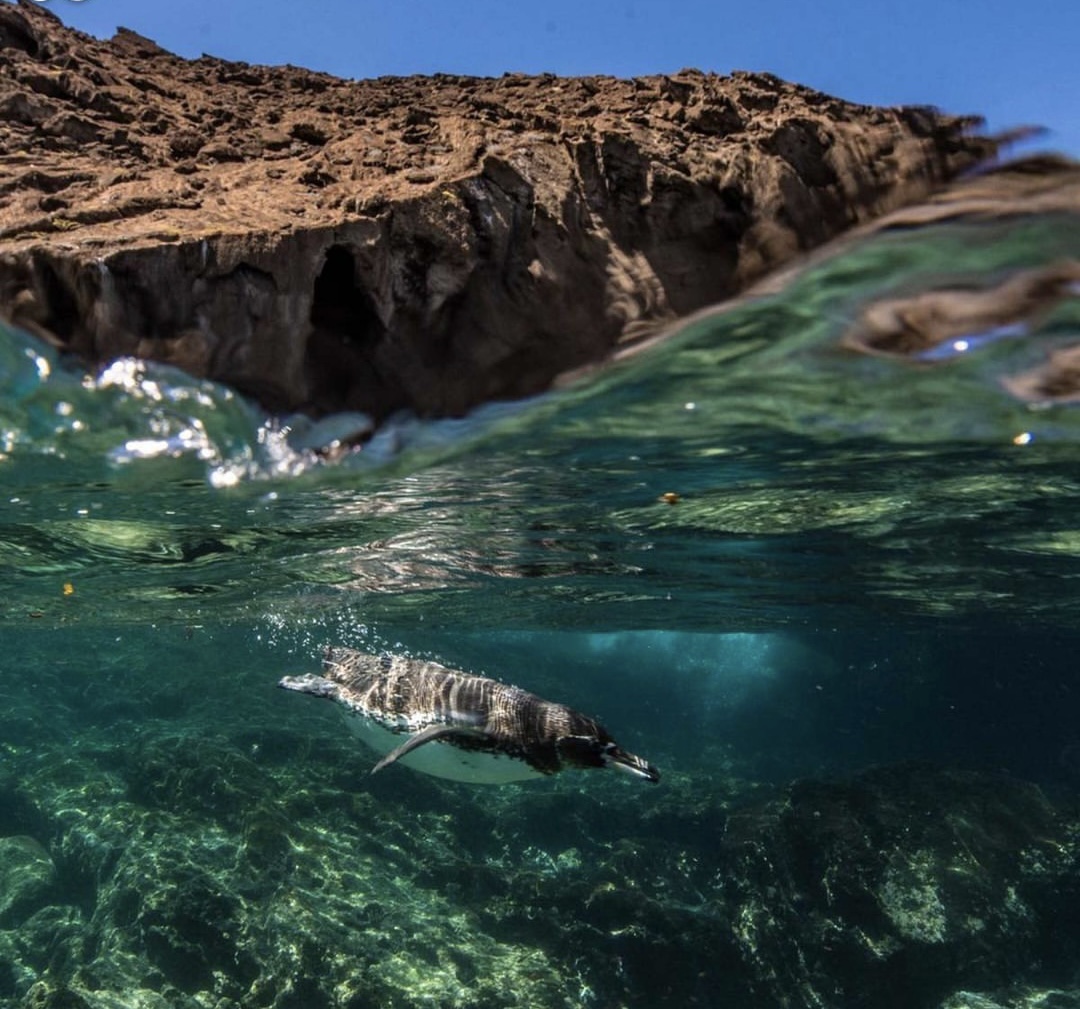A Very Welcome Comeback!
Galapagos Penguins Report Solid Growth
Written by Francisco Dousdebés, Head of Corporate Responsibility and Sustainability, Metropolitan Touring
One of the most delightful encounters any adventurer can enjoy in the Galapagos Islands — whether in the water or along the volcanic shores — must be meeting the only equatorial penguin on the planet: the Galapagos Penguin (Spheniscus mendiculus).
Considered the rarest penguin species on Earth due to its extremely narrow geographic distribution and very low population numbers, protecting this species is key to preserving biodiversity, and tourism plays a part that protection, too.
Natural events and phenomena like El Niño (ENSO) of 1982-1983 and 1997-1998, as well as the impact of introduced species, all affect penguins in dramatic ways. Their low numbers suffer incredibly, their feeding resources collapse, and direct predation may even affect the little recruitment of individuals.
Recent field studies by scientists from the Charles Darwin Foundation and Galapagos Conservancy have confirmed an increase in the number of juvenile and subadults: numbers of penguins may reach anywhere around 2,000 individuals.
With more individuals added to the actively reproducing population, the genetic pool will increase and with that, genetic healthiness will prepare them for the generations ahead. This data gives us all hope for the long-term survival of Galapagos penguins. Nevertheless, these creatures face another threat: climate change. If sea temperatures increase, fish stocks for penguins will collapse and finding adequate sources of food will become increasingly difficult for them.
This is why the decarbonizing of the world’s activities is so crucial, particularly for the survival of biodiversity. Fortunately, all our itineraries and excursions include outings for experiencing up-close encounters with the stunning Galapagos penguin. Parallel to those great adventures, our Naturalists will discuss important strategies for protecting our planet better, like our carbon neutral program and its offsetting work in Ecuador.
